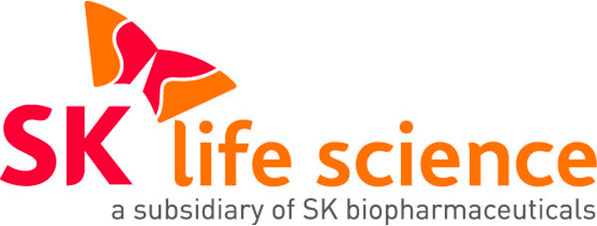November 28, 2016
AZ Central
Laurie Roberts
It’s Monday, so 41yearold Mark Mecham will be preparing for a full day. He’ll be hanging out with his friends, learning about safety and making bird feeders and in the afternoon, there will be a “dance off”. This week, there will be trips to the Capitol museum and Cabela’s.
Last month, there was a pumpkin festival and Mark got to see a tractor. His face lights up at the mention of it.
Mark, the grandson of former Gov. Evan Mecham, is one of 35,000 developmentally disabled Arizonans who rely on the state to help them live as full a life as possible.
In the next few weeks, the state may be taking away a vital piece of their world ... simply by doing nothing.
Consider it a consequence of passing Proposition 206 – unintended, unfair, unacceptable. And unless Gov. Doug Ducey and the Legislature quickly take action, unavoidable.
Prop. 206 gives one choice: Close
“If funding is such that the day program is cut, he would have nothing,” Mark’s mother, Linda, told me. “He would stay at home all day long. He wouldn’t have a social life. He loves coming to the Marc Center. If he did not have that...”
Prop. 206, approved by voters earlier this month, will raise the minimum wage to $10 an hour on Jan. 1. But while McDonalds can raise the price of a Big Mac and Burger King can cut staff and schools can cram yet another kid into the classroom, most of the providers that serve the developmentally disabled say they can do only one thing:
Close.
State reimbursement rates for taking care of this vulnerable group of Arizonans were cut 15 percent during the Great Recession and they’ve never recovered. Programs were slashed and for the providers that are left – the number has dropped from 1,801 to 650 since 2009 the state now funds them at just under 80 percent of the cost.
Providers tell me they’ve gutted employee benefits and eliminated middle management to cut costs. They’ve trimmed all the little program extras and put off building maintenance.
But staffing ratios are set by law and can’t be changed. Add in skyrocketing insurance costs, a potential new federal mandate that requires providers to pay overtime and now... a requirement that they pay $10 an hour, beginning Jan. 1.
Program needs $300k by Jan. 1
Providers tell me they don’t begrudge employees the added pay. It’s often backbreaking work and only those who have a passion for the job last. But just as you can’t squeeze blood out of a turnip, providers tell me they can’t pull an estimated 16 percent more out of a wallet that’s already empty.
Susan Bastion is CEO of Blythe Center, which provides day programs and inhome care to 137 clients. She has 142 employees, most of whom make $9 an hour. Unless the state boosts her annual rate by $300,000 to cover the pay raise, she’ll be out of business on Jan. 1.
“I can’t go a day,” she told me. “We will have to close our doors and it’s killing me. I can’t make payroll.”
John Moore is president and CEO of Marc Community Resources, which has been in the Valley since 1957. The nonprofit serves 4,500 clients, including 1,000 who have severe intellectual disabilities and developmental delays providing them with housing support, day programs and employment, if they’re able to work.
It's the center of the world for Mark
Among them are the 28 and 24yearold daughters of Cheryl Noll. If Marc closes, Noll says she’ll have to quit her job to stay home, losing not only a paycheck but the family’s health insurance.
Among them is the 21yearold son of Mona Zucker. She says her son requires intensive roundtheclock care that she can’t provide.
Among them is Mark Mecham, who takes 18 medications a day and requires oneonone care. He lives with his parents but during the day attends CC’s Place in Mesa, one of four day programs run by Marc.
In addition to social activities, this is the place where Mark is learning his new address and participates in an exercise program designed to improve his manual dexterity. The place where he is learning to clean up after himself by clearing off the lunch table and taking out the trash.
The place that is the center of the world, as Mark knows it. For now.
$30 million next month is a tough sell
This week, the provider community will ask Ducey to call an emergency special legislative session in December to come up with the estimated $30 million it’ll cost to save Mark’s world, and the world of so many others. Either that or commit to passing an emergency funding bill in January, to retroactively cover the pay increase.
If they don’t get it, they warn the results will be “catastrophic” for people like Mark. “The DD direct care service system will quickly go bankrupt,” Moore told me.
I’m guessing that’ll be a tough sell at the state Capitol. This is a governor and a Legislature more focused on cutting taxes than boosting spending – a governor and a Legislature that will be bombarded with funding requests as a result of Prop. 206’s passage.
And let's just be honest, it’s easy to ignore the cries of those who can’t speak for themselves.
People like Mark, the grandson of a governor – one who soon may see the end of the world, as he knows it.
“Because he is on the lower end of the Autism Spectrum, he would not understand that he is not able to go to his ‘program’ (his word), see his friends, have music with Julie, go to the gym with Walter, ride the bus that picks him up every day in the parking lot or share a Thanksgiving Day Feast with his friends and community members,” his mom told me.
“Mark’s life is full, not only because of family but because he has a circle of friends outside of his family. The opportunity to attend CC’s Place has given him a bit of independence that he would otherwise not enjoy.”
Mark’s circle remains intact, for now. But for how long?














